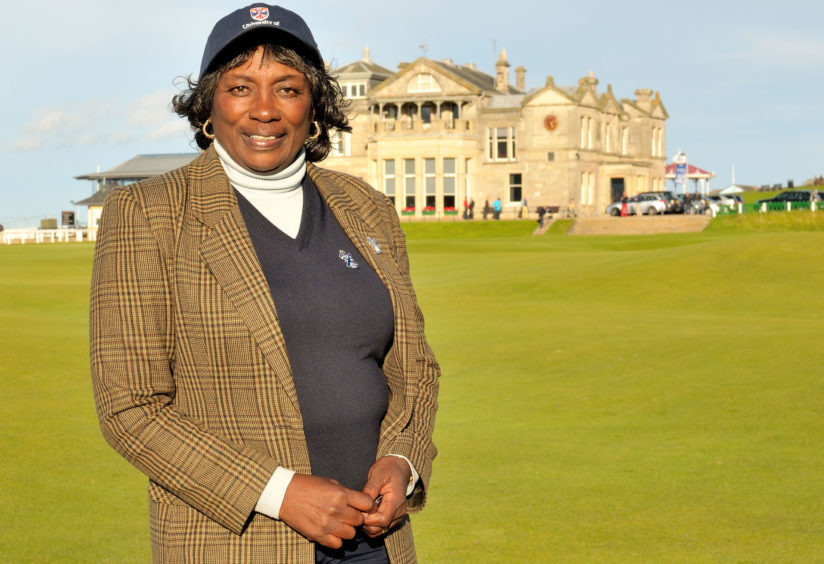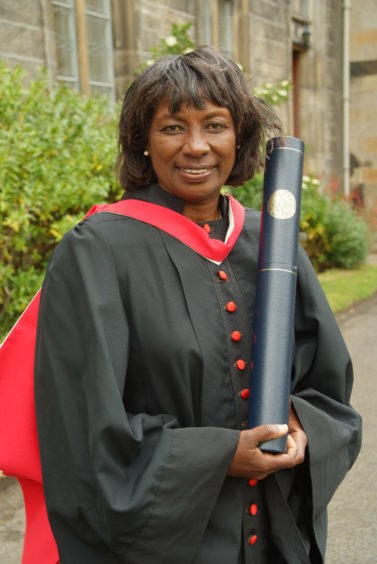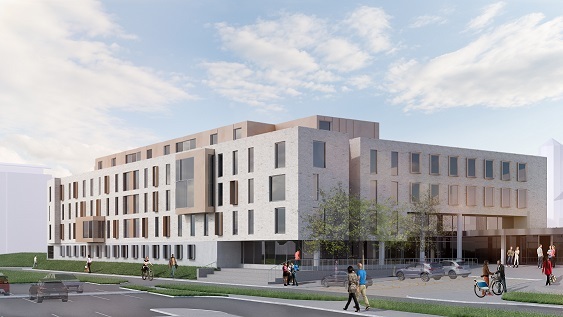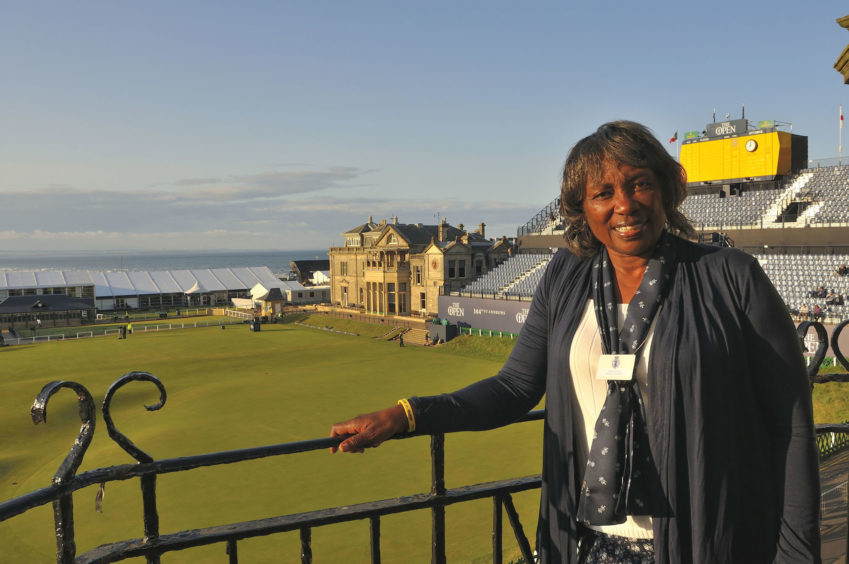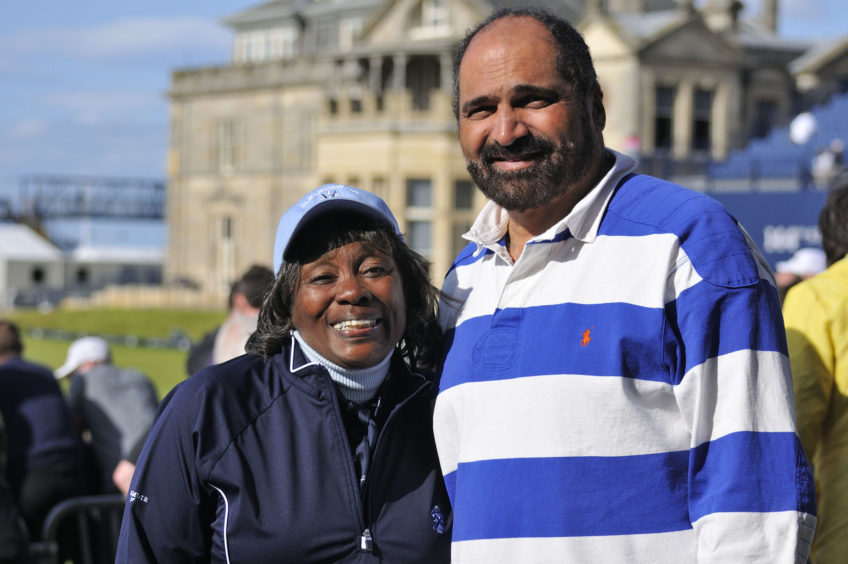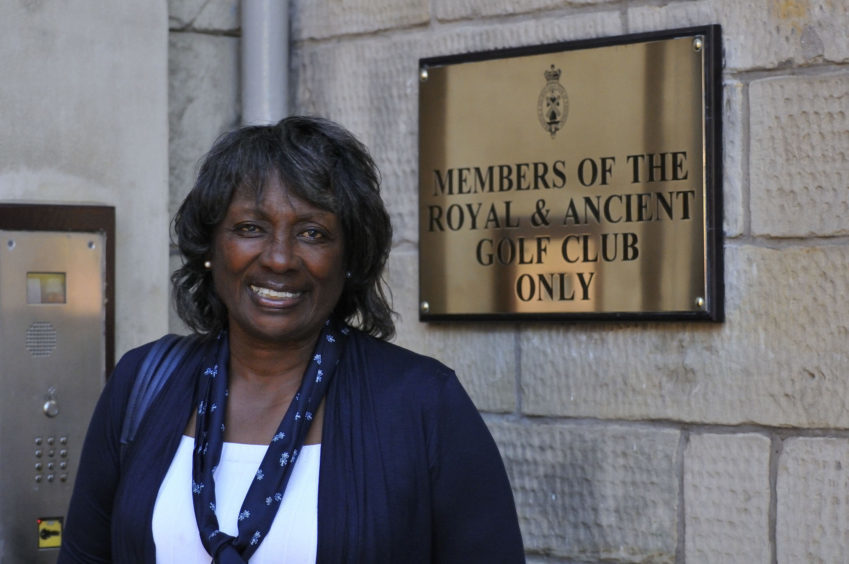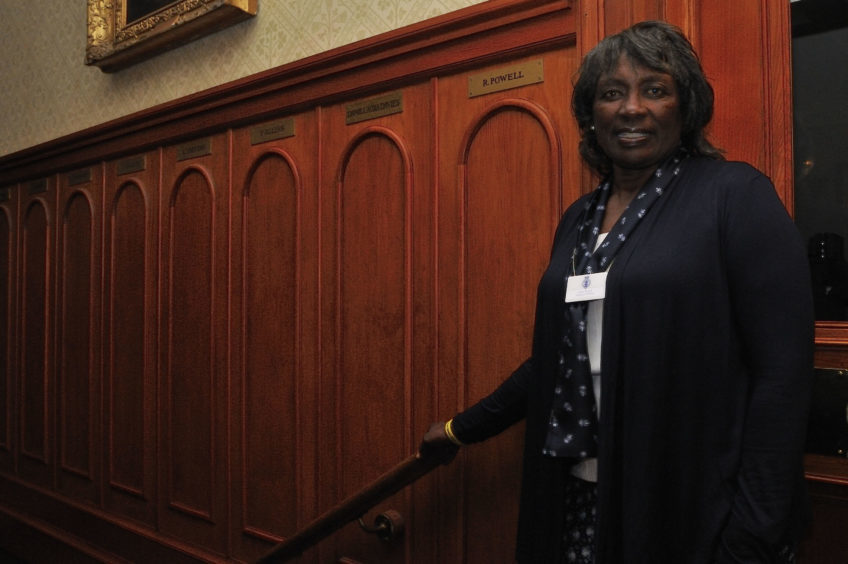In an exclusive interview, American professional golfer Renee Powell – the great-great granddaughter of Alabama slaves – tells Michael Alexander how the latest honour to be bestowed upon her by St Andrews University eclipses everything that’s gone before.
Crossing the Atlantic to receive a high profile accolade in St Andrews has become something of a habit for Renee Powell.
In 2008, the American professional golfer, who was the second African American woman ever to play on the LPGA Tour, became the first woman golfer to receive an honorary degree from St Andrews University.
In 2015 she then expressed “honour and shock” at being one of the first seven women to be nominated for honorary membership of the Royal and Ancient Golf Club of St Andrews.
Now the down-to-earth 72-year-old is returning to the Home of Golf yet again to officially open a St Andrews University hall of residence which has been named after her.
On Wednesday September 19 she will cut a ribbon at the 205-room Powell Hall at North Haugh which, along with the 184-room Whitehorn Hall at St Leonard’s Road named after British journalist Katharine Whitehorn, is part of a £70 million investment in student accommodation by the university.
In an exclusive interview from her home in Ohio where she manages the Clearview golf course built by her late father Bill, Renee revealed that the St Andrews accolades mean even more to her than being inducted into the PGA of America Hall of Fame last year.
“I’m still trying to get my arms around it all,” she said. “It’s amazing. I feel like St Andrews is almost a second home to me. The greatest and most significant things that have happened in my life in recent years have all happened in the Kingdom of Fife.
“I think being a golfer certainly and going to Scotland – St Andrews, is huge.
“When I received my honorary doctorate 10 years ago, having my dad with me for the occasion was wonderful.
“Now having the Powell name – my family’s name – on a building at the oldest university in Scotland at one of the most significant universities in the UK – I mean what a huge honour.
“I take it as an honour for my whole family and all the contributions that they have made to the world of golf.”
Born in East Canton, Ohio, Renee regularly credits the influence of her father who overcame major challenges of his own in life.
The great-grandson of Alabama slaves, he battled racism to become the only African-American to build, own and operate a golf course, and was renowned as a selfless ambassador for building diversity in the game and making golf a beacon for people of all colour in the USA.
It was her father who first put a shortened club in her hands at the age of three and inspired her on a path which saw her emerge onto the professional golf scene in June 1967 becoming only the second African-American to join the LPGA tour. She played on the tour until 1980 – competing in more than 250 professional golf tournaments and won the Kelly Springfield Open in Brisbane, Australia.
When she received her honorary degree from St Andrews University in 2008, her father, who was posthumously inducted into the PGA of America Hall of Fame in 2013, joined her as did Brian Whitcomb, then president of the PGA of America.
At the time, she described the experience as “absolutely the most incredible thing that has ever happened to me and the icing on the cake was having my dad there with me.”
But following his passing aged 93 in 2009, Renee admits her father, who fell in love with Scotland whilst stationed in the UK during the Second World War, would be “smiling from ear to ear” at the prospect of the Powell name now being attached to a St Andrews University building.
Renee will only be in St Andrews for three full days this week and if nothing else she would like to go down and do some putting on the ‘Himalayas’.
She will also return to the R&A for the golf club’s annual meeting, annual dinner – and to check her name is still on her locker!
Renee told The Courier during her last visit that golf has a “unique power” to bring people of all races and nationalities together and to “break down barriers”.
As a black female golfer living in Trump’s America, she might be the first to admit that the mood of an apparently more intolerant society has changed in recent times.
But while reluctant to comment on politics, and admitting there’s still a lot of racism and sexism in some sports, she stands by her belief that golf – and sport in general – is a force for good and hopes that one day, people like her will be judged purely on their abilities and not by their gender or colour of their skin.
She said: “Sports have a way of bringing people together. Although golf has been slow in making change, I think in order for our game to remain healthy it’s very important that diversity be a part.
“With diversity you have so many different ideas which bonds and brings people together if you are doing something for the common good. And certainly golf is good!
“Here I am – a black American female golfer that is coming over to Scotland receiving this huge honour in the Home of Golf. That sends very powerful messages.”
